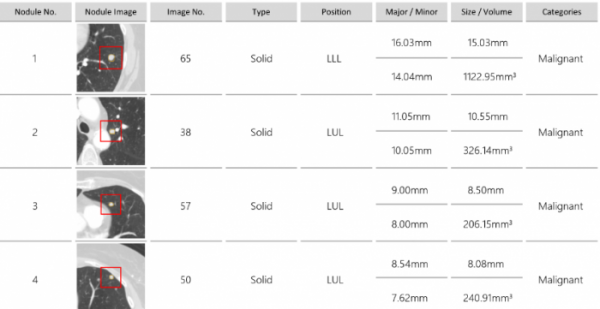AI Takes on Lung Cancer: Deepnoid’s New Automated Lung-RADS Classification Solution
Daniel Kim Views

DeepNoid announced on the 19th that it had presented a research abstract on the Deep Learning-Based Automated Lung-RADS Classification Algorithm for lung cancer screening through low-dose chest computed tomography (LDCT) at the American College of Radiology 2024 (ACR 2024).
This research aims to reduce the time taken for lung image analysis for lung cancer diagnosis and narrow the classification deviation range. According to the announcement, the classification accuracy of Lung-RADS Score 4A and 4B, which have a high likelihood of lung cancer among detected lung nodules, showed performance of 81.41% and 96.38%, respectively.
Lung-RADS is a system that classifies the probability of a lung nodule being lung cancer into grades. It is classified from 1 to 4, with 2-3 considered benign and 4 considered malignant.
The algorithm will be applied to the real-time lung nodule detection AI solution DEEP:LUNG DL-LN-02, which is scheduled to be commercialized in the second half of this year. DEEP: LUNG is an AI-based solution that assists healthcare professionals in diagnosing by detecting suspected areas of lung nodules from low-dose chest CT images.
Through this research, the Lung-RADS score function has been added. Also, compared to the existing model, the performance for lung nodule detection showed an 18% and 11% improvement in sensitivity and specificity, respectively.
The DeepNoid research team said, “LDCT, which is used for lung cancer screening, requires a lot of time to interpret hundreds of slices. This announcement is a research result that provides an efficient approach to lung cancer diagnosis, and the market expectations are high.”










Most Commented